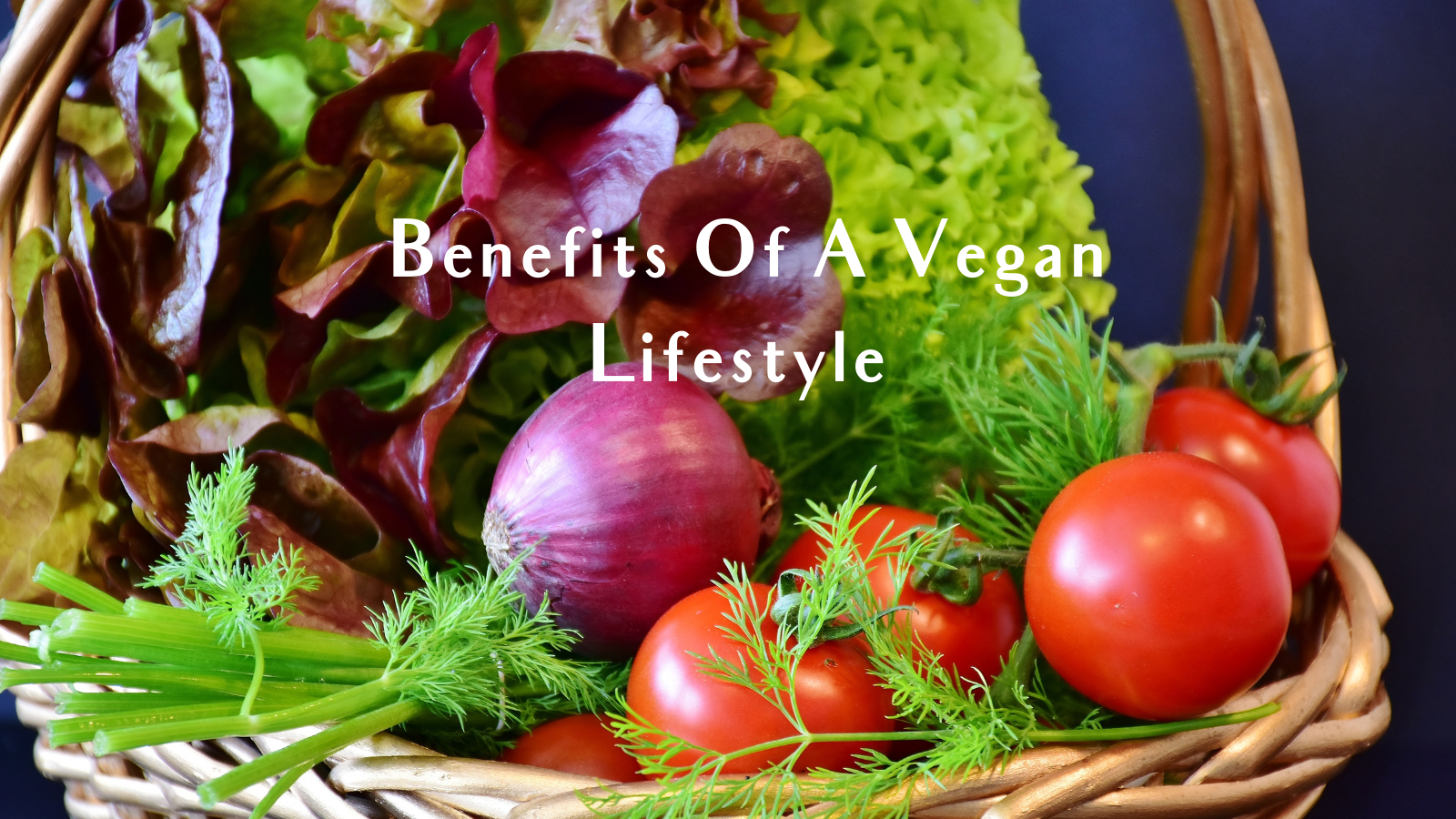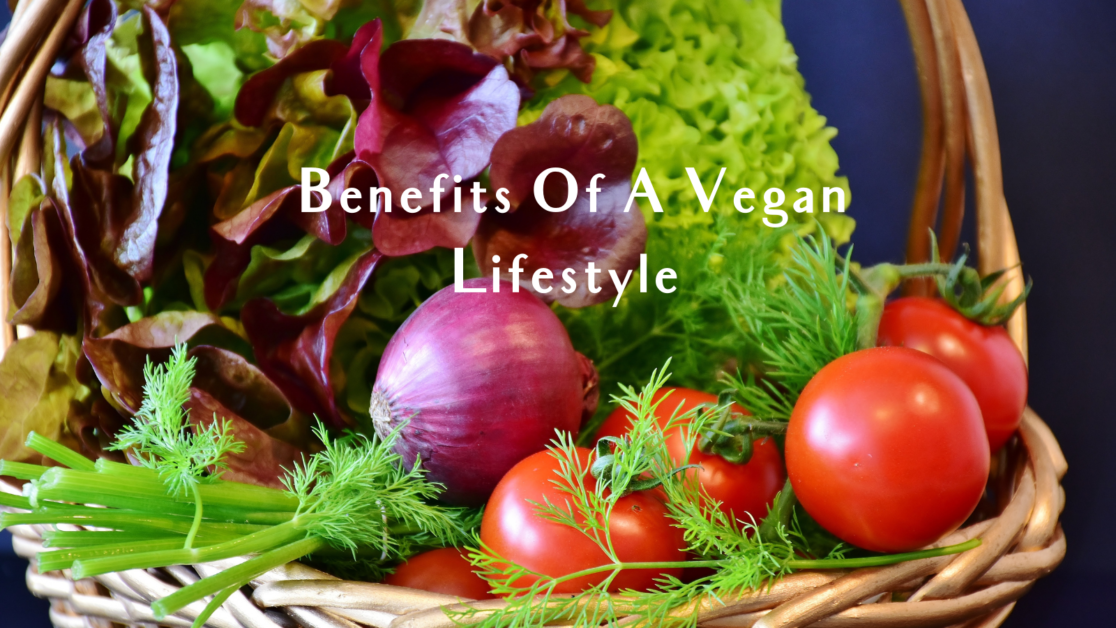Benefits Of A Vegan Lifestyle

Benefits Of A Vegan Lifestyle
Living a vegan lifestyle has become increasingly popular in recent years, with more and more people embracing its ethical, environmental, and health benefits.
Veganism goes beyond a dietary choice and encompasses a holistic approach to life that prioritizes compassion for animals, sustainability, and personal well-being.
This article will explore the numerous benefits of adopting a vegan lifestyle.
From improved health and weight management to reduced environmental impact and a profound sense of ethical alignment, we will delve into the transformative effects that veganism can have on individuals and the world.
Whether you're considering making the switch or seeking to deepen your understanding of veganism, this article will provide valuable insights into the many advantages of embracing a vegan lifestyle.
True Essence Of The Vegan Lifestyle
The vegan lifestyle is rooted in abstaining from animal products and promoting a compassionate and ethical approach to living.
It goes beyond dietary choices and extends to various aspects of life, including clothing, personal care products, and entertainment.
Veganism strongly emphasizes animal welfare and seeks to eliminate the exploitation and cruelty associated with factory farming, animal testing, and animal-based entertainment.
By choosing not to consume or use animal products, vegans strive to create a world where animals are treated with respect and compassion.
A plant-based diet is at the core of the vegan lifestyle. Vegans avoid all animal-derived products, including meat, poultry, seafood, dairy, eggs, and honey.
Instead, they rely on various fruits, vegetables, grains, legumes, nuts, and seeds to meet their nutritional needs.
A vegan diet is known for its health benefits, as it is typically low in saturated fat and cholesterol but high in fiber, vitamins, and minerals.
Veganism recognizes the significant environmental impact of animal agriculture. The production of animal-based products consumes vast resources, contributes to deforestation, generates greenhouse gas emissions, and pollutes waterways.
Individuals can reduce their ecological footprint and contribute to a more sustainable future by choosing a vegan lifestyle.
Veganism is deeply rooted in ethical considerations. Living in alignment with one's values of compassion and non-violence towards animals is a conscious choice.
Vegans reject the notion of animals as commodities and advocate for their rights to live free from harm.
This ethical standpoint extends to all aspects of life, from food choices to clothing, cosmetics, and entertainment.
By embracing a vegan lifestyle, individuals try to live harmoniously with their values, promote animal welfare, protect the environment, and enhance their health.
It is a transformative journey that has the potential to create a positive impact on both individuals and the world as a whole.
Benefits Of A Vegan Lifestyle
The vegan lifestyle has become increasingly well-known in recent years due to increased knowledge of its many advantages.
Beyond dietary choices, veganism comprises a holistic strategy to lessen animal suffering, save the environment, and advance individual well-being.

1. Improved Health
A vegan lifestyle is often associated with improved health outcomes due to the emphasis on plant-based foods. By adopting a vegan diet, individuals can experience various health benefits.
First off, a vegan diet that is well-planned can be full of vital elements, including vitamins, minerals, and antioxidants.
Vitamins A, C, and E, potassium, magnesium, fiber, and whole grains are plentiful in fruits, vegetables, whole grains, legumes, nuts, and seeds.
These nutrients are known to support a variety of body processes and enhance general well-being.
According to a study, a vegan diet may also help lower the chance of developing chronic diseases.
The consumption of processed meals, saturated fats, and cholesterol has decreased, while that of plant-based foods, which are naturally low in hazardous components, has increased.
A vegan diet can also help in controlling diabetes and keeping a healthy weight.
Plant-based foods tend to be higher in fiber and lower in calories, which can help with weight management and increase satiety.
For those who already have diabetes or who are at risk of getting it, the higher fiber content can also help control blood sugar levels.
While a vegan diet can positively affect your health, it's crucial to ensure you get well-balanced nutrients.
All nutritional requirements can be satisfied, and any potential deficiency can be rectified with the assistance of a healthcare practitioner or certified dietitian.
An excellent starting point for promoting long-term health and well-being can be found in adopting a vegan lifestyle.

2. Weight Management
Weight management is one of the many benefits of a vegan lifestyle.
When properly planned, a vegan diet tends to be rich in whole, nutrient-dense foods that are naturally lower in calorie density compared to animal-based products.
This means that individuals can consume larger portions of plant-based foods while maintaining a lower calorie intake.
One of the key factors contributing to weight management on a vegan diet is its high fiber content.
Plant-based foods such as fruits, vegetables, whole grains, legumes, and nuts are excellent sources of dietary fiber.
Fiber provides bulk to meals, promoting a feeling of fullness and satiety, which can help curb overeating and reduce snacking between meals.
Additionally, a high-fibre diet aids in regulating blood sugar levels, preventing spikes and crashes that can lead to cravings and overeating.
Furthermore, a vegan diet typically emphasizes whole, unprocessed foods, which are naturally lower in added sugars, unhealthy fats, and refined carbohydrates.
This can help individuals avoid or limit calorie-dense and nutrient-poor foods, often associated with weight gain and increased risk of chronic diseases.
While a vegan diet can aid in weight management, it's crucial to remember that personal factors like total caloric consumption, physical activity, and genetics also come into play.
To ensure proper nutritional intake while controlling weight, it's essential to maintain a well-balanced and varied vegan diet that includes a wide variety of plant-based meals.
A certified dietician can offer individualized advice and assistance for weight management objectives while maintaining a vegan lifestyle.

3. Environmental Impact
A vegan lifestyle offers significant environmental benefits, making it a powerful choice for individuals concerned about the planet's well-being.
One of the most prominent environmental advantages is reducing greenhouse gas emissions.
Animal agriculture, including livestock production and the associated deforestation for grazing and feed crops, is a major contributor to greenhouse gas emissions.
Vegans lessen climate change by consuming fewer products made from animals, which also helps them consume less carbon.
Additionally, a vegan lifestyle helps conserve land and water resources. Livestock farming requires vast amounts of land for grazing and growing animal feed.
By choosing plant-based foods, vegans utilize land more efficiently, as plant crops tend to be more resource-efficient in land use.
Furthermore, animal agriculture is water-intensive, with water consumption for livestock farming surpassing crop production.
By adopting a vegan lifestyle, individuals contribute to water conservation and reduce the strain on freshwater resources.
Deforestation, primarily driven by the expansion of agricultural land for livestock, has a devastating impact on biodiversity and ecosystem stability.
By eliminating animal products, vegans are crucial in combating deforestation and preserving natural habitats. They help protect vulnerable species and promote biodiversity conservation.
Sustainable food choices are essential for the long-term health of the planet. Individuals actively support a more sustainable and environmentally friendly food system by embracing a vegan lifestyle.
It's worth noting that while individual actions make a difference, systemic changes and collective efforts are also needed to address the environmental challenges we face.

4. Animal Welfare
A core aspect of a vegan lifestyle is the commitment to animal welfare and refusal to support industries that exploit and harm animals.
Vegans recognize the inherent value of all living beings and believe that animals should be treated with compassion and respect.
By choosing a vegan lifestyle, individuals actively contribute to reducing animal suffering.
Animal agriculture, including factory farming, is associated with practices that prioritize profit over animal welfare.
Animals raised for food often endure crowded and unsanitary conditions, routine mutilations without anesthesia, and inhumane slaughter methods.
By abstaining from animal products, vegans refuse to participate in these systems of exploitation and support alternative ways of nourishing themselves without causing harm.
Vegans also extend their ethical considerations beyond food choices.
They avoid products tested on animals, opt for cruelty-free cosmetics and household items, and support companies that prioritize animal welfare.
By making compassionate choices in their daily lives, vegans promote a culture of kindness and advocate for the rights of animals to live free from unnecessary harm and exploitation.
Moreover, a vegan lifestyle encourages the exploration of alternative and sustainable ways to coexist with animals.
This may include advocating for the protection of wildlife habitats, supporting animal sanctuaries and rescue organizations, and promoting policies that prioritize animal welfare.
Ultimately, a vegan lifestyle aligns personal choices with the belief in animals' inherent value and well-being.
It serves as a powerful way to take a stand against animal suffering and make a positive impact on the lives of countless beings.

5. Increased Variety And Culinary Exploration
A vegan lifestyle opens up a world of culinary exploration and allows individuals to embrace a diverse and exciting range of plant-based foods.
With various fruits, vegetables, grains, legumes, nuts, and seeds, vegans can explore new flavours, cuisines, and cooking techniques.
One of the remarkable aspects of vegan cooking is its creativity and versatility.
Plant-based ingredients can be transformed into delicious and satisfying alternatives to traditional animal-based dishes.
For example, vegetables like cauliflower and mushrooms can create meaty textures and flavours in dishes like cauliflower steaks or mushroom burgers.
Legumes like chickpeas and lentils can be the foundation for hearty stews, curries, and burgers. Nuts and seeds can become creamy sauces, cheese alternatives, and decadent desserts.
Veganism encourages individuals to experiment with a wide range of spices, herbs, and seasonings, enhancing the flavours of plant-based dishes and adding depth to meals.
It also provides an opportunity to discover and appreciate the natural tastes of wholesome ingredients without relying on animal products.
Moreover, exploring vegan cuisine allows a deeper understanding and appreciation of different cultures and their traditional plant-based dishes.
From vibrant Mediterranean salads and rich Indian curries to comforting Mexican tacos and Asian stir-fries, a world of flavours awaits exploring.
Embracing a vegan lifestyle promotes personal health and ethical choices and invites individuals to embark on an exciting culinary journey.
By discovering the endless possibilities of plant-based ingredients, vegans can indulge in delicious and nutritious meals while expanding their palate and celebrating the richness of diverse cuisines.

6. Improved Digestion
A vegan lifestyle can positively affect digestion and improve gut health. One of the key factors is the increased fiber intake that comes with a plant-based diet.
Dietary fiber, abundant in plant foods, including fruits, vegetables, whole grains, legumes, and nuts, is essential to maintaining a healthy digestive system.
Constipation is less likely due to fibre's ability to bulk up the stool and support regular bowel motions.
Furthermore, it functions as a prebiotic, feeding the good bacteria in the gut. A healthy gut microbiome is crucial for optimum digestion and general health; these bacteria are essential in maintaining that microbiome.
A vegan diet, abundant in plant-based fiber, can help alleviate common digestive issues like bloating and discomfort.
The fiber content in plant foods helps regulate digestion by slowing down the absorption of nutrients and promoting a feeling of fullness.
This can aid in portion control and prevent overeating, further supporting digestive health.
Additionally, excluding animal products from the diet may reduce the intake of saturated fats and cholesterol commonly found in animal-based foods.
High intake of these substances has been linked to digestive disorders such as gallstones and gastroesophageal reflux disease (GERD).
By adopting a vegan lifestyle, individuals may experience relief from these conditions and promote a healthier digestive system.
It is worth noting that when transitioning to a vegan diet, it is essential to introduce fiber gradually and drink sufficient water to prevent any potential discomfort.
Each person's digestive system is unique, and it is advisable to listen to your body and make adjustments as needed.
By embracing a vegan lifestyle and incorporating fibre-rich plant foods into their diet, individuals can support their digestive health, promote regularity, and reduce the likelihood of digestive issues, ultimately contributing to overall well-being and vitality.

7. Enhanced Energy And Vitality
A plant-based diet can significantly impact energy levels and overall vitality. Individuals following a vegan lifestyle often experience enhanced energy throughout the day by focusing on nutrient-dense plant foods.
Plant-based diets are naturally rich in vitamins, minerals, antioxidants, and phytochemicals, supporting optimal cellular function and providing a steady energy source.
The abundance of complex carbohydrates in plant foods, such as whole grains, legumes, and fruits, provides a sustained release of energy, avoiding the spikes and crashes associated with processed and refined foods.
These complex carbohydrates are slowly digested, providing a steady stream of glucose for the body's energy needs.
The high fiber content of plant-based diets also aids in controlling blood sugar levels and averting energy slumps.
Additionally, plant-based diets provide vital vitamins and minerals important for generating energy.
In particular, B vitamins help the body turn food into useful energy and support the neurological system's operation.
You can ensure you adequately intake these crucial elements by including various plant-based foods in your diet.
The antioxidants and phytochemicals in fruits, vegetables, nuts, and seeds also improve energy levels.
These compounds protect the body's cells from damage caused by oxidative stress and inflammation, which can drain energy levels.
Plant-based foods can enhance vitality and well-being by reducing cellular damage and promoting overall health.
It's important to note that individual experiences may vary, and factors such as overall diet quality, physical activity, and unique metabolism also affect energy levels.
However, a balanced and nutrient-rich vegan diet can provide the foundation for sustained energy and vitality, supporting optimal health and well-being.
A few examples of plant-based foods that can be included in meals to help maintain a well-rounded nutrient intake and support higher energy levels and general health include whole grains, legumes, fruits, vegetables, nuts, and seeds.

8. Empowering Personal Choice
Choosing a vegan lifestyle empowers individuals to align their actions with their values and ethics.
By embracing veganism, individuals actively create positive change in the world. The choice to live following one's beliefs and values fosters a sense of empowerment and purpose.
Adopting a vegan lifestyle often involves self-reflection and conscious decision-making.
It requires individuals to question long-held beliefs, challenge societal norms, and educate themselves about the impact of their choices.
This process of self-discovery and growth can be transformative, leading to a greater understanding of the interconnectedness of all living beings and the planet.
Moreover, living in alignment with one's values cultivates a sense of authenticity and integrity. It allows individuals to make choices consistent with their deepest convictions and principles.
This sense of personal integrity can enhance self-esteem and overall well-being, providing a solid foundation for living a fulfilling and meaningful life.

Conclusion
In conclusion, adopting a vegan lifestyle offers many benefits beyond personal health.
Individuals who follow a plant-based diet contribute to animal welfare, environmental sustainability, and global food security.
The health benefits of a vegan diet, including reduced risk of chronic diseases and improved weight management, are well-documented.
Moreover, embracing a vegan lifestyle allows individuals to align their actions with ethical beliefs, promoting compassion and respect for animals.
Ultimately, the benefits of a vegan lifestyle extend beyond personal health, encompassing a global perspective on sustainability, ethics, and compassion.
Each individual's journey toward veganism may be unique, but the collective impact of embracing a plant-based diet and lifestyle is substantial.
By choosing a vegan lifestyle, individuals can make a positive difference in their own lives, the lives of animals, and the health of the planet we all share.
I trust you enjoyed this article about the Benefits Of A Vegan Lifestyle. Please stay tuned for more blog posts to come shortly. Take care!
JeannetteZ
>>>Do You Want To Surprise Your Family And Guests With Delicious Vegan Lunches And Dinners On A Regular Basis? Become A Member At Veecoco – My #1 Recommendation – And Have Access To Over 700 Delicious, Healthy AND 100% Vegan Recipes<<<
Your Opinion Is Important To Me
Ideas? Thoughts? Questions? I would love to hear from you. Please leave me your questions, experience, and remarks about this article on the Benefits Of A Vegan Lifestyle in the comments section below. You can also reach me by email at Jeannette@LivingTheVeganLifestyle.org.
Disclosure
This post may contain affiliate links. I earn from qualifying purchases as an Amazon Associate and other affiliate programs. Please read my full disclosure.
Here are links to some of my favourite articles:
7 Delicious Vegan French Toast Recipes







